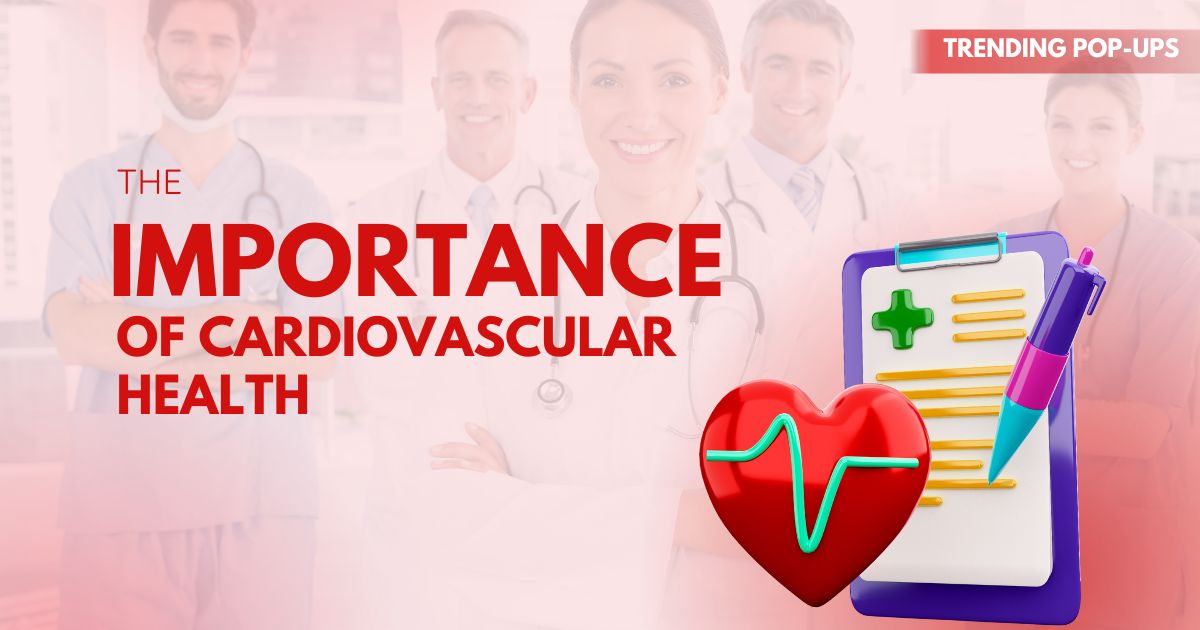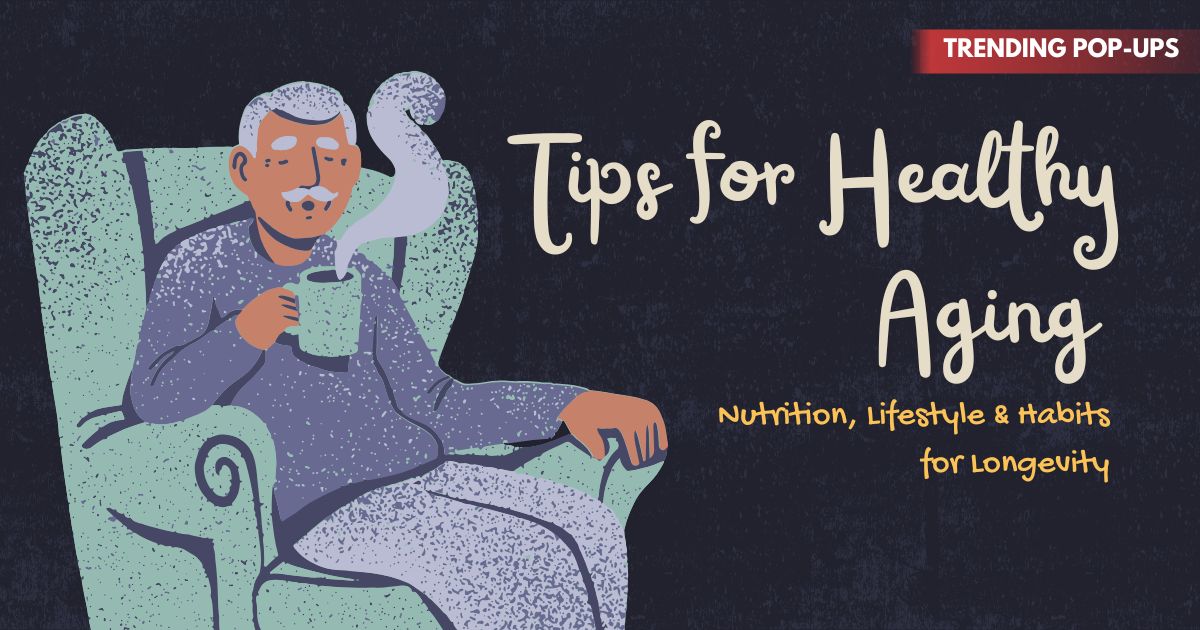Cardiovascular health is critical for overall well-being and longevity. The cardiovascular system, which includes the heart, blood vessels, and blood, is responsible for delivering oxygen and nutrients throughout the body. Maintaining a healthy heart and circulatory system not only reduces the risk of life-threatening conditions but also enhances energy levels, mental clarity, and quality of life. Understanding the importance of cardiovascular health and implementing preventive strategies can help you live a longer, healthier life.
Why Cardiovascular Health Matters
The heart is the engine of the body, pumping blood to every organ and tissue. Poor cardiovascular health can lead to serious conditions such as:
-
Heart disease – The leading cause of death worldwide.
-
Stroke – Caused by interrupted blood flow to the brain.
-
High blood pressure – Can damage arteries and organs over time.
-
Peripheral artery disease – Reduced blood flow to limbs causing pain and fatigue.
Strong cardiovascular health ensures proper circulation, oxygen delivery, and optimal functioning of all body systems.
Key Factors Affecting Cardiovascular Health
Several factors influence heart and circulatory system health:
1. Diet
A diet high in saturated fats, trans fats, and sodium can lead to plaque buildup in arteries, increasing the risk of heart disease. Conversely, a diet rich in fruits, vegetables, whole grains, lean proteins, and healthy fats promotes cardiovascular health.
2. Physical Activity
Regular exercise strengthens the heart muscle, improves blood flow, and reduces stress. Both aerobic exercises (like walking, swimming, and cycling) and resistance training are beneficial.
3. Weight Management
Excess body weight strains the heart and increases the risk of hypertension, diabetes, and high cholesterol. Maintaining a healthy weight supports optimal cardiovascular function.
4. Smoking and Alcohol
Smoking damages blood vessels and reduces oxygen in the blood. Excessive alcohol intake can lead to high blood pressure and heart disease. Limiting or avoiding these habits is crucial.
5. Stress and Mental Health
Chronic stress elevates cortisol and blood pressure, which can damage arteries over time. Managing stress through mindfulness, meditation, or hobbies supports cardiovascular well-being.
Benefits of Maintaining Cardiovascular Health
Maintaining a healthy cardiovascular system offers numerous benefits:
-
Reduced risk of heart disease and stroke – Protects against life-threatening conditions.
-
Better energy and stamina – Efficient circulation increases oxygen delivery to muscles and organs.
-
Improved mental clarity – Adequate blood flow supports brain function and reduces fatigue.
-
Weight management – A strong heart supports metabolism and healthy weight.
-
Longer lifespan – Heart-healthy habits promote longevity and overall quality of life.
Signs of Poor Cardiovascular Health
Recognizing early signs of cardiovascular issues is essential:
-
Shortness of breath during light activity.
-
Persistent fatigue or weakness.
-
Chest discomfort or pain.
-
Swelling in legs, ankles, or feet.
-
Irregular heartbeat or palpitations.
If you experience any of these symptoms, it’s important to consult a healthcare professional promptly.
Tips to Improve Cardiovascular Health
1. Adopt a Heart-Healthy Diet
-
Focus on fruits, vegetables, whole grains, lean proteins, and healthy fats (like olive oil and nuts).
-
Reduce intake of processed foods, sugary drinks, and excessive salt.
-
Include omega-3-rich foods like salmon, flaxseeds, and walnuts to reduce inflammation.
2. Engage in Regular Exercise
-
Aim for at least 150 minutes of moderate aerobic exercise per week.
-
Incorporate strength training twice a week.
-
Simple activities like brisk walking, cycling, or swimming can significantly improve heart health.
3. Maintain Healthy Body Weight
-
Monitor your BMI and waist circumference.
-
Combine diet and exercise for sustainable weight management.
4. Avoid Smoking and Limit Alcohol
-
Quit smoking to reduce risk of arterial damage and heart disease.
-
Limit alcohol to moderate levels (up to one drink per day for women, two for men).
5. Manage Stress and Mental Health
-
Practice yoga, meditation, or deep breathing exercises.
-
Engage in hobbies or social activities to reduce mental strain.
6. Monitor Your Heart Health
-
Regularly check blood pressure, cholesterol, and blood sugar levels.
-
Annual check-ups with a doctor help detect early issues.
Common Myths About Cardiovascular Health
-
Myth 1: Only older people need to worry about heart health.
-
Fact: Cardiovascular problems can start early. Healthy habits in youth prevent issues later.
-
-
Myth 2: If I exercise, diet doesn’t matter.
-
Fact: Exercise and diet must go hand in hand for optimal heart health.
-
-
Myth 3: Heart disease always causes chest pain.
-
Fact: Some heart issues are silent, especially in women and older adults. Regular screenings are important.
-
Conclusion
The importance of cardiovascular health cannot be overstated. A strong and well-functioning heart supports every aspect of life, from physical energy to mental clarity. By adopting a heart-healthy diet, engaging in regular exercise, managing stress, and avoiding harmful habits, you can reduce the risk of cardiovascular disease and enhance your quality of life. Prioritizing your heart today is an investment in your future wellness.
Also Read : Benefits of Morning Sunlight Exposure – Boost Health Naturally
FAQs
Q1. What is cardiovascular health?
Cardiovascular health refers to the condition of the heart and blood vessels, ensuring proper circulation, oxygen delivery, and overall body function.
Q2. How can I improve my cardiovascular health naturally?
Focus on a balanced diet, regular exercise, maintaining a healthy weight, managing stress, avoiding smoking, and moderating alcohol intake.
Q3. What are early signs of cardiovascular disease?
Shortness of breath, fatigue, chest discomfort, swelling in legs or feet, and irregular heartbeat are common signs.
Q4. Can exercise alone prevent heart disease?
Exercise is vital but must be combined with a heart-healthy diet and lifestyle habits for maximum benefit.
Q5. How often should I check my heart health?
Annual check-ups, including blood pressure, cholesterol, and blood sugar tests, are recommended, especially after age 30.



